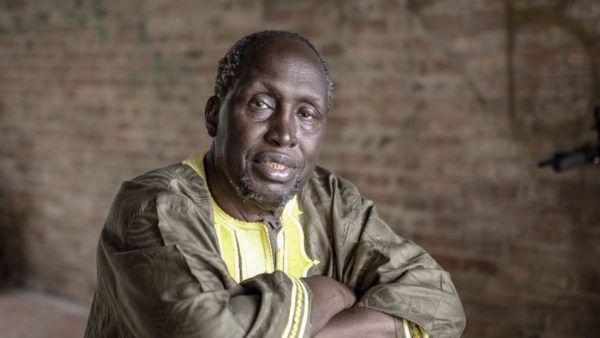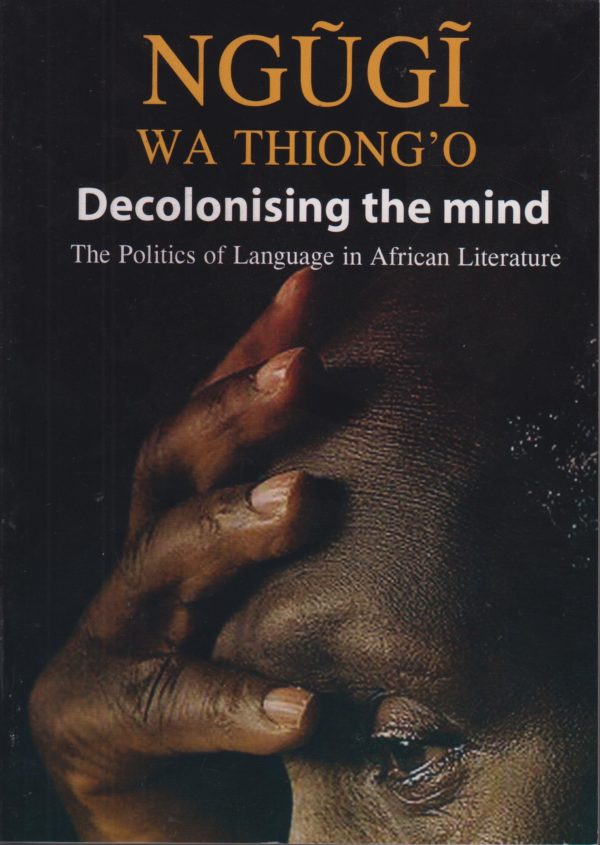
Ngũgĩ wa Thiong’o has been awarded the 2019 Erich-Maria-Remarque Peace Prize, worth €25,000, “chiefly with regard to his enlightening anti-colonialist topics, his reference to traditional African theatre and narrative art and his advocacy of the preservation of his mother tongue as a mark of identification,” with the jury further describing him as “an important representative of independence through language.”
Prominently cited in the announcement is his 33-year-old classic, the collection of essays Decolonising the Mind: The Politics of Language in African Literature, first published in 1986 by Heinemann Educational in Nairobi, Zimbabwe Publishing House in Harare, and James Currey in London. One of the most studied, storied and cited books in African literature and postcolonial studies, and the foremost globally arguing for linguistic decolonisation, Decolonising the Mind is an investigation of “language and its constructive role in national culture, history, and identity.” The book—“gratefully dedicated to all those who write in African languages, and to all those who over the years have maintained the dignity of the literature, culture, philosophy, and other treasures carried by African languages”—comprises four essays: “The Language of African Literature,” “The Language of African Theatre,” “The Language of African Fiction,” and “The Quest for Relevance.” Since 1984, Ngũgĩ has written primarily in his native Kikuyu (Gikuyu) and then translated his text into English.
Starting in 1991, and given by the city of Osnabrück in Germany, the biennial Erich-Maria-Remarque Peace Prize—named after the German novelist Erich Maria Remarque, author of All Quiet on the Western Front—“is awarded, following the ideas of its namesake, for fictional, journalistic or scientific works which set out to engage with inner and outer peace as well as for demonstrating an exemplary commitment to peace, humanity and freedom.” This is the 15th time the prize has been given. Here is the citation:

Chaired by Osnabrück University president Prof. Dr. Wolfgang Lücke, the Prize jury includes Prof. Dr. Rita Süssmuth, Prof. Dr. Stefanie Schüler-Springorum, Prof. Dr. Heribert Prantl, Dr. Johano Strasser, Dr. Hubert Winkels, Ms Jutta Sauer, Prof. Dr. Tilman Westphalen as the representative of the Erich-Maria-Remarque Society, Dr. Thomas Schneider as the director of the Erich-Maria-Remarque Peace Center, Lord Mayor Wolfgang Griesert as the representative of the city of Osnabrück, and Dr. Sven Jürgensen as the press spokesman of the city of Osnabrück. They wrote in the press release:
With Ngũgĩ wa Thiong’o we are honouring a writer who is concerned with the self-determination of African cultures and with a dissociation from colonial constraints. His attempt to create a dialogue through literature in spite of or indeed because of the different languages evokes understanding for this continent and can thus contribute towards peace. Also with regard to the avoidance of a new colonialism, as endeavoured today by China for example, Ngũgĩ wa Thiong’o is an important representative of independence through language.
In a separate statement, Lord Mayor Griesert said:
The €5,000 special prize went to Sea-Watch, an association committed to rescuing refugees at sea, which “is financed exclusively by donations, is supported by volunteers from all over Europe, [and] has been involved in the rescue of well over 37,000 people.”
A perennial candidate for the Nobel Prize in Literature, Ngũgĩ has taught comparative literature and English at Yale University, New York University, and at the University of California, Irvine, where he presently is. Days after his 81st birthday in January, he announced his 34th book, a Gikuyu philosophical epic novel titled Kenda Muiyuru: Rugano Rwa Gikuyu na Mumbi, coming 13 years after his last, Wizard of the Crow (2006). The book, his 10th fiction book, which will be translated into English by him as The Perfect Nine: The Story of Gikuyu and Mumbi, will be released by East African Educational Publishers. In December 2018, Ngũgĩ: Reflections on His Life of Writing, edited by Simon Gikandi and Ndirangu Wachanga to celebrate his 80 years of age, was released by the British publisher Boydell & Brewer.
Previous winners of the Erich-Maria-Remarque Peace Prize are: Lev Kopelev (1991), Hans Magnus Enzensberger (1993), Uri Avnery (1995), Ludvik Vaculik (1997), Houshang Golshiri (1999), Svetlana Alexievishh (2001), Prof. Dr. Dr. Dr. Dan Bar-On and Mahmoud Darwish (2003), Leoluca Orlando (2005), Prof. Dr. Tony Judt (2007), Henning Mankell (2009), Tahar Ben Jelloun (2011), Abdallah Frangi and Avi Primor (2013), Adonis (2016), and Aslı Erdoğan (2017).
The Erich-Maria-Remarque Peace Prize will be presented to Ngũgĩ at a 29 November ceremony in the Friedenssaal (Hall of Peace), Osnabrück, Germany.
Brittle Paper congratulates Ngugi wa Thiong’o.









Afternoon Bites: T Fleischmann’s Essay, Ngũgĩ wa Thiong’o, Jo Walton’s Latest, Bud Smith, and More – Vol. 1 Brooklyn May 31, 2019 13:01
[…] Ngũgĩ wa Thiong’o has won this year’s 2019 Erich-Maria-Remarque Peace Prize. […]